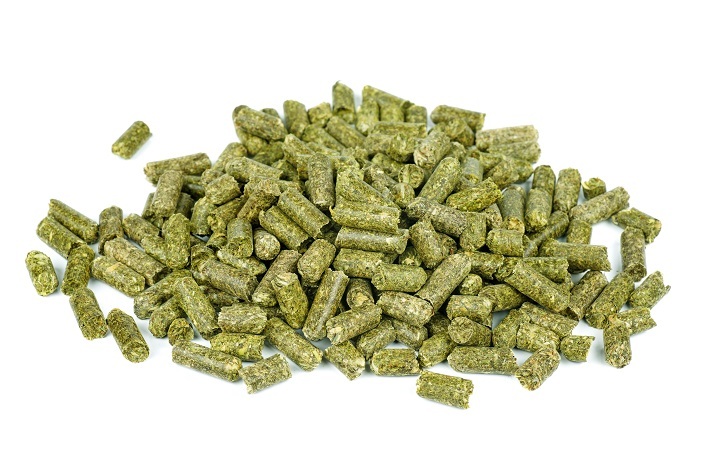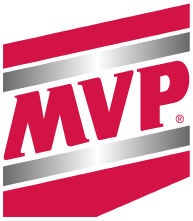Proper mineral nutrition is crucial for determining the health of your horse. But how can you ensure your horse receives everything in the required amounts?
Ensuring they receive all the essential nutrients through hay and grain alone can be challenging, especially for equine athletes who burn significant energy and sweat daily.
Many horses rely solely on forage-based diets, often missing critical nutrients such as calcium, sodium, and zinc. Even mineral licks or salt blocks may only partially meet their needs. This is where good horse supplements come into play, helping fill the nutritional gaps and ensuring optimal health.
Does Your Horse Need Supplements?
All horses require a supplemental source of minerals and vitamins to avoid common deficiencies. Being deficient in essential nutrients can lead to specific health conditions such as muscle disorders, impaired reproductive health, digestive issues, reduced disease resistance, and poor hoof quality.
The mineral and nutritional requirements of horses were defined by the National Research Council in 2007 under their Nutrient Requirements of Horses. Under this notice, the dietary requirements of horses are determined according to their weight, age, and physiological status. This guideline outlines the minimum quantity of specific nutrients that should be present in your horse's diet to avoid deficiency.
Also Read: 5 Things to Know when Shopping for Horse Supplements
Common Nutritional Deficiencies
Unfortunately, many horses do not receive sufficient nutrients as the National Research Council recommends.
Mad Barn's review of 2021 reviewed around 6500 equine diets, recording the common nutritional deficiencies as below:
- Sodium: 70.9% of horses fell short
- Vitamin E: 57% of horses were under requirement
- Zinc: 43.1%
- Copper: 31.9%
- Selenium: 49.3%
- Manganese: 32.4%
These findings underscore the importance of providing the best vitamin mineral supplements for horses to support their health.
Determining if your horse has a nutrient deficiency:
Supplements containing the best vitamins for horses aim to correct the nutritional deficiency your horse is struggling with. Working with your veterinarian or an equine nutritionist can help determine nutrient deficiencies.
Addressing a nutritional deficiency early helps prevent medical conditions such as equine motor neuron disease caused by a deficiency of vitamin E and selenium. Some commonly observed horse nutritional deficiencies are
- Excessive muscle soreness
- Lethargy
- Respiratory difficulties
- Colic
- Reduced willingness to work
- Poor coat quality
- Diarrhea or watery stools
- Reduced appetite
What Should You Consider When Selecting the Best Horse Supplements?

When searching for the best supplement for horses, make sure they are specifically formulated. Many supplements marketed to other animals can harm your horse.
Next, you need to consider your horse's age, current diet, and activity levels. Each of these factors changes the necessary supplement and dosage requirements for your horse.
Finally, you should only select the best equine supplements that satisfy your horse's requirements, ensuring they come from a trustworthy manufacturer.
As you are now keen on selecting the best one, make sure you take a deep dig into
- Ingredient list
- Percentage value of each ingredient
- Good consumer service with readily available company's contact information
- A lot number and best buy date should be indicated on the product label
Tips to Select the Best Horse Supplements
Here are some tips to select the best equine supplements for your horse:
1. Horse Individual's Requirement
Assessing your horse's specific needs is one of the essential parameters before selecting the right supplements. Your horse's age, workload, breed, and health conditions play a crucial role in this selection.
2. Quality and Efficacy of Your Ingredients
Pay careful attention to what ingredients go into your best vitamin mineral supplement for horses.
Select horse supplements that are high in quality and bioavailable sources of minerals, vitamins, and other nutrients. Research regarding the scientific evidence behind the effectiveness of each key ingredient to address the specific need you target.
3. What is its Delivery Method
Determine whether good horse supplements are available in a practical and easy-to-administer form.
Commonly available good supplements for horses are pellets, powders, treats, or liquids.
4. Standards of Manufacturing and Quality Control
Choose vitamin-mineral supplements for horses from reputable manufacturers or brands renowned for their commitment to quality and efficacy. Look for manufacturers that adhere to GMP standards and manufacture in audited laboratories.
5. Seek Professional Guidance
Consult a professional veterinarian or equine nutritionist to select the best horse supplements. These professionals can help you with personalized recommendations by evaluating your horse's diet and current deficiencies.
Also Read: Finding the Right Mineral Supplement for Your Horse: A Complete Guide
Takeaway:
Selecting the best horse supplements is essential after carefully considering several factors such as age, diet, and weaknesses. Ensuring the quality and efficacy of the supplements you opt for is of the utmost importance. Regular evaluation of your horse's nutritional health and timely seeking of professional guidance help you ensure that your horse stays healthy, fit, and refined.
Giving your horse a horse supplement helps ensure their long-term health and well-being. Choose supplements tailored to your horse's age, breed, activity level, and health needs. Focus on quality, NASC-approved supplements, and consult your vet for personalized advice.
Get the Best Horse Joint Supplements from Experts
Get the best horse joint supplements for your horse from Med-Vet Pharmaceuticals.
We offer different supplements to cater to your horse's various health requirements. Since the 1980s, we have been on a mission to provide high-quality and unique nutritional formulations for addressing everyday health concerns.
Contact our team at 833-809-4848 to evaluate your horse's nutritional requirements and formulate the best supplements for them.


